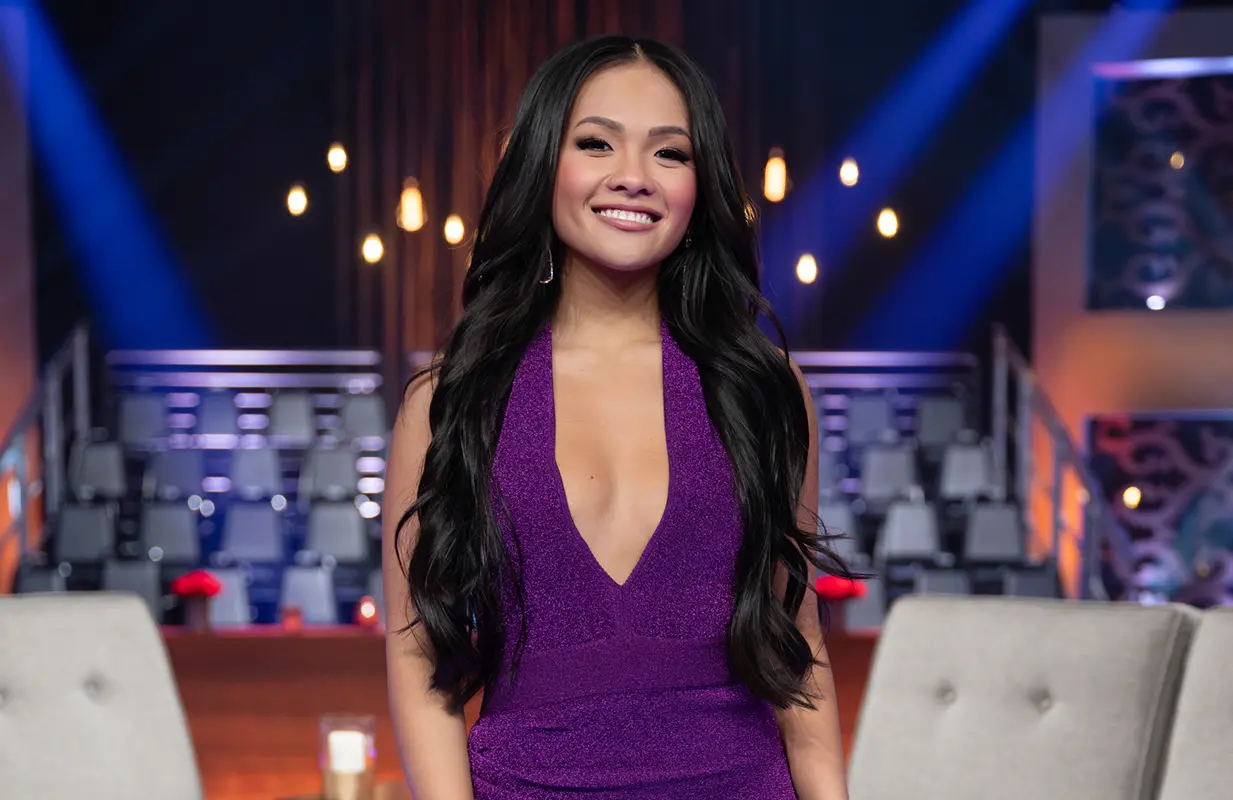The Bachelorette's Diverse Casting Efforts Shouldn't End With Jenn Tran
-
 Jenn Tran is the new The Bachelorette (Photo: John Fleenor/ABC)
Jenn Tran is the new The Bachelorette (Photo: John Fleenor/ABC)Former The Bachelor contestant Jenn Tran is the new Bachelorette for Season 21. The 25-year-old Vietnamese American was among the final six in the running for Bachelor Joey Graziadei’s heart, but despite being eliminated in Episode 7, she left enough of an impression for producers to bring her back. Though the announcement was a bit anticlimactic, Tran is still making history as the first Asian American Bachelorette.
Tran said she feels “grateful and honored” to have been chosen. She shared during the finale that “Growing up, I’ve always wanted to see Asian representation on TV. I feel like it was really sparse. Anytime Asians were in the media, it was to fill a supporting character role, to fulfill some sort of stereotype and I always felt boxed in by that because I was like, I don’t see myself on screen. I don’t see myself as a main character.”
While the franchise’s first Asian-American lead is cause for celebration, it’s concerning that the show’s selection of romantic suitors already seems to be lagging behind. ABC has teased the potential cast members who will be vying for Tran’s affections. Although it hasn’t been confirmed yet, the prospective lineup is still primarily white and includes only three Asian men: Jahaan, Marcus, and Thomas.
The Bachelor franchise has been long criticized for its poor handling of race, including its predominantly white casting, stereotypical storylines, high-profile contestants with history of racist behaviors, perpetuating Asian stereotypes, and sexualizing Asian cast members. Even this most recent Bachelor season sparked controversy when the wrong Asian contestant was tagged on social media. Notably, each season of The Bachelorette typically has roughly one or two people of Asian descent on its roster, but they’re rarely highlighted unless they have made it past a certain round in the competition.
White contestants still make up more than 50% of the Bachelor franchise. Black, Indigenous, and other people of color end up competing against each other for the few remaining spots. For the three Black Bachelorettes — Rachel Lindsay, Tayshia Adams, and Charity Lawson — ABC saw fit to have Black men make up the majority of the diverse casting (in Lawson’s season, they made up 55% of the suitors). For Season 21, the potential cast, as reported by US Weekly, looks to be 50% white, while just three of the would-be contestants are of Asian descent.
While the idea of “love has no color” is an optimistic one, we cannot ignore the implications of having a lone Asian woman on a show with a majority of white men vying for her attention. Asian women have often been objectified by western media as “exotic” and “docile.” Though Tran doesn’t fall into the stereotype and has been very vocal about it, the limited number of Asian men in casts that often have few men of color at all says “We want your women, but not so much your men.” For Asian men in particular, this reinforces the idea that they aren’t desirable or seen as potential love interests among western audiences. This is why it’s important for the network to understand why having a diverse cast of bachelors, particularly those of Asian descent, is necessary for Tran’s season.
The lack of Asian men on The Bachelorette has spawned several satirical videos, calling out the cliches and typecasting that plague Asian men. Throughout the 20 seasons of The Bachelorette so far, less than 1% of the suitors were of Asian descent. Season 16 contestant Ivan Hall was the only contestant of Asian descent to have a hometown date, where Tayshia Adams got to know his family. Fan favorite Ethan Kang of Season 19 was eliminated right before the hometown dates, but he garnered positive attention for his handsome looks and charisma, with many calling for him to be the next Bachelor. So far, those calls have been ignored.
As a franchise that is most popular in white Middle America, The Bachelor(ette) has the potential to enhance its audience’s cultural awareness and understanding. In the past, having contestants of color has yielded rich storytelling and onscreen breakthroughs. There’s no doubt that Tran will have to educate everyone about her Vietnamese background, but providing her with Asian love interests would relieve her of the burden of having to “represent all Asians.” It would also remind the world that Asians aren’t a monolith — even if we are of the same ethnicity, our life experiences can be vastly different.
It’s not to say that only people of the same race or ethnicity should be together. Lindsay, Adams, and James all ultimately chose white partners, and there is nothing wrong with that. But during those seasons, the casting team seemed to understand the importance of including a good number of Black suitors, even if the show remained set in a white world. Tran may ultimately not have a spark with any of the Asian contestants, but they deserve as much of a shot as the many, many white men who have gotten one in the past.
Laura Sirikul is a freelance journalist covering entertainment, pop culture, and health. Her work has appeared in Empire Magazine, Entertainment Weekly, Elle Magazine, What To Watch, Nerdist, IGN, Timid Magazine, and more.
TOPICS: The Bachelorette, ABC, The Bachelor, Jenn Tran, Bachelor Nation
- The Secret Lives of Mormon Wives cast fills Taylor Frankie Paul in on fruity pebbles feud after The Bachelorette
- The Bachelorette season 1 couple Ryan and Trista Sutter reach 22nd anniversary – Revisiting their love story
- Bachelorette Taylor Frankie Paul’s suitors might have celebrity connections. Details explored
- The Bachelorette’s Taylor Frankie Paul is open to dating dads, reveals the qualities she’s looking for in a partner